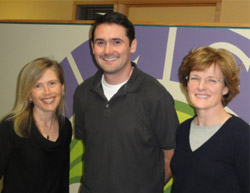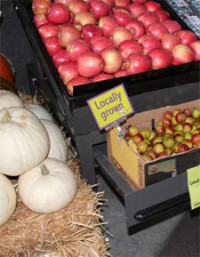PCC Board of Trustees report, November 2012
This article was originally published in November 2012
Board report

There was no board meeting in October. Look for a report on the October 17 board outreach event, including photos, on our website by November 14 and in the December issue of this paper.
The September 25 board meeting agenda included approval of work plans for the board’s four standing committees and approval of the methodology for the upcoming member survey. The board also reviewed ongoing planning for its February retreat, when the board will begin an in-depth look at our Ends policies.
The nominating committee reported on its work so far and led a discussion on its interviews with current trustees. The bylaws require the board to give feedback to each year’s nominating committee on current board dynamics and strategic issues.
Board applications were due by October 15. The committee is in the review and interview process this month. The 2013 board candidates will be announced on our website as soon as the slate is set and in the January issue of the Sound Consumer.
New Local Suppliers

Throughout 2011, PCC merchandises were successful in establishing new local relationships in all departments. Produce added four new farms. Grocery added four new vendors and the deli department welcomed three new vendors.
Meat/Poultry added two new suppliers, while wine and beer brought in eight new local wineries and breweries. Health and beauty care added two new vendors.
The overwhelming majority of all the new vendors are from Washington.
Next board meeting
The next regularly scheduled board meeting will be Tuesday, November 27 at 5 p.m. at the co-op office. Member comment period is at 7 p.m. Comments are limited to three minutes unless a longer presentation is approved by the chair in advance of the meeting.
Ends reporting
Management reports to the board each year on its interpretation of our Ends policies and on the actions of the past year that convey its compliance with these guiding policies. This is another in a series of excerpts from the 2012 report on 2011 activities.
Ends Policy C: PCC has a local focus
Interpretation: Management interprets Ends Policy C to mean that PCC’s retail business focuses primarily on the Puget Sound region for its customer base, giving preference to producers, suppliers, community organizations and other partners located in or near our market area.
For the purposes of store locations, “local” is within a reasonable distance of PCC’s current stores and within the Puget Sound (mostly King and Snohomish counties) region. For procurement purposes, “local” is equivalent to “Northwest” and encompasses the states of Washington and Oregon and southern British Columbia. Supporting a “local focus” does not preclude doing business with non-local organizations when doing so better serves our membership and the long-term well being of PCC.
Compliance Indicators
- Store Locations — PCC has not actively pursued expansion of its market area beyond the greater Seattle metropolitan area. We have confined our research concerning potential store sites to neighborhoods in the region that overlap or complement the trade areas already served by PCC.
>
>
2011 did bring about the signing of a lease for PCC’s tenth store that will anchor a new development called Green Lake Village. It is scheduled for completion sometime in late 2013. - Product Sourcing — PCC merchandisers always give preference to local products, unless for reasons of quality or availability they need to choose products from farther away. Even in our wine department more than half of our domestic selections are from Washington and Oregon.
>
>
In recent years our management team has debated how our co-op might redefine — if at all — what “local” means for procurement purposes. Our merchandisers equate “local” with “Northwest,” meaning within the geographic boundaries of Washington, Oregon and southern British Columbia.
